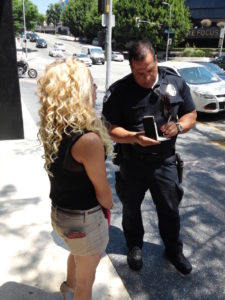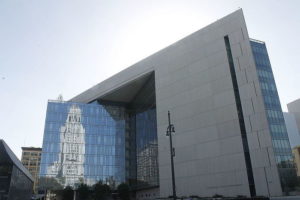On September 20, 2020, I sent a request for some old reports to Mark Smith, the Inspector General of the Los Angeles Police Department. On April 16, 2021 Smith produced the responsive records. This is the story of what happened in the seven months between the request and the production!1
On September 22, 2020, just two days after receiving my request, Police Commission Executive Director Richard Tefank emailed Deputy City Attorney Soraya Kelly who, along with Carlos De La Guerra, staffs CPRA requests for the Commission and the OIG. He wanted legal advice, and he had some very … colorful … ideas about my work:2
So now I receive this email from [Kohlhaas].
From what he is doing to my office and the OIG I feel this guy is harassing us via CPRA requests. Is there any action that can be taken. Quite frankly I don’t have the time for these games.
Richard
It’s clear from this that Tefank and Mark Smith had been talking, and they weren’t happy with me! Their default attitude towards people who expect them to follow the law they voluntarily made themselves subject to is that they’re being harassed. Meanwhile, on September 29, 2020, precisely when required to do so by law, Smith sent me a letter claiming a 14 day extension to respond, in which he stated that he would in fact respond by October 13, 2020.3
And Tefank’s anxiety about my requests got worse! Just three days after Smith sent me that extension letter Tefank sent a heartbreakingly plaintive email to Smith,4 LAPD Constitutional Cop5 Lizabeth Rhodes, CPRA cops Bryan Lium and Marla Ciuffetelli, and a bunch of deputy city attorneys, including Soraya Kelly, Julie Raffish, Debra Gonzalez, and Carlos de la Guerra:
Continue reading Los Angeles Police Department Inspector General Mark Smith Is Supposed To Investigate LAPD To See That They Comply With The Law — Which Is Pretty Hypocritical Since His Office Intentionally And Egregiously Violates The California Public Records Act — Which Is A Violation Of Requesters’ Constitutional Rights — I Made A Request In September 2020 — His Staffer Julie Buchwald Had The Records Ready By October 2020 — She Messed Around And Didn’t Produce The Records Until April 16 2021 — If Smith Doesn’t Know That Buchwald Is A Liar And An Outlaw Then He’s Incompetent — If He Does Know He’s A Co-Conspirator — Either Way He Has No Business Whatsoever Overseeing Anything Related To Obeying The Law — Especially The Police — He Is A Hypocrite And Ought To Resign Immediately — He Probably Exonerates Every Cop He Investigates To Sooth His Conscience Over His Own Lawbreaking — Even Cops Ought To Refuse To Be Overseen By This Guy — Who At This Point Has Zero Credibility — Did I Mention He Ought To Resign?





